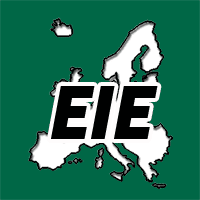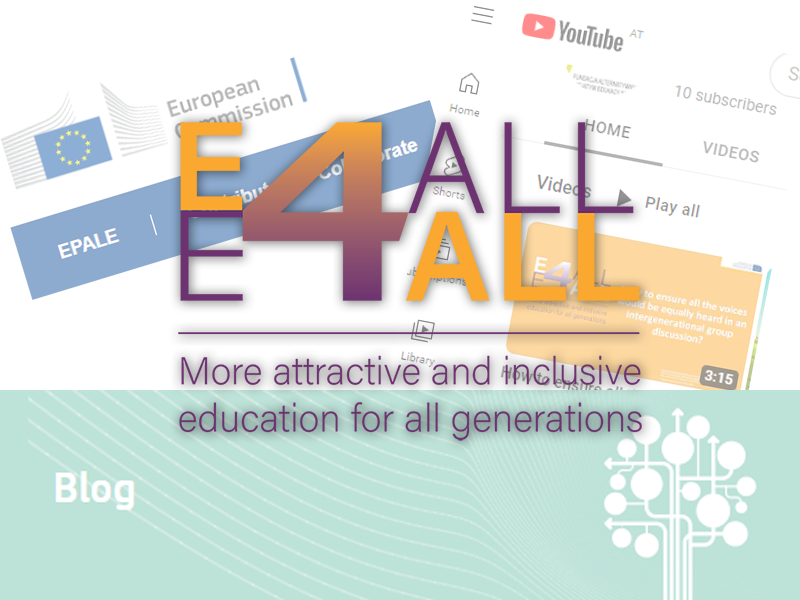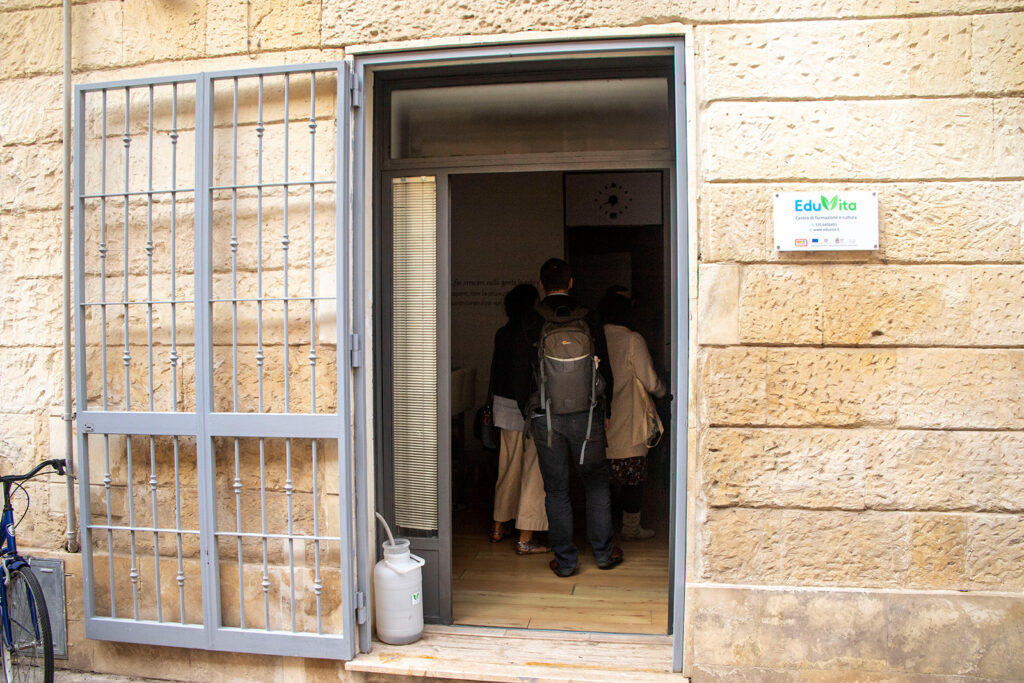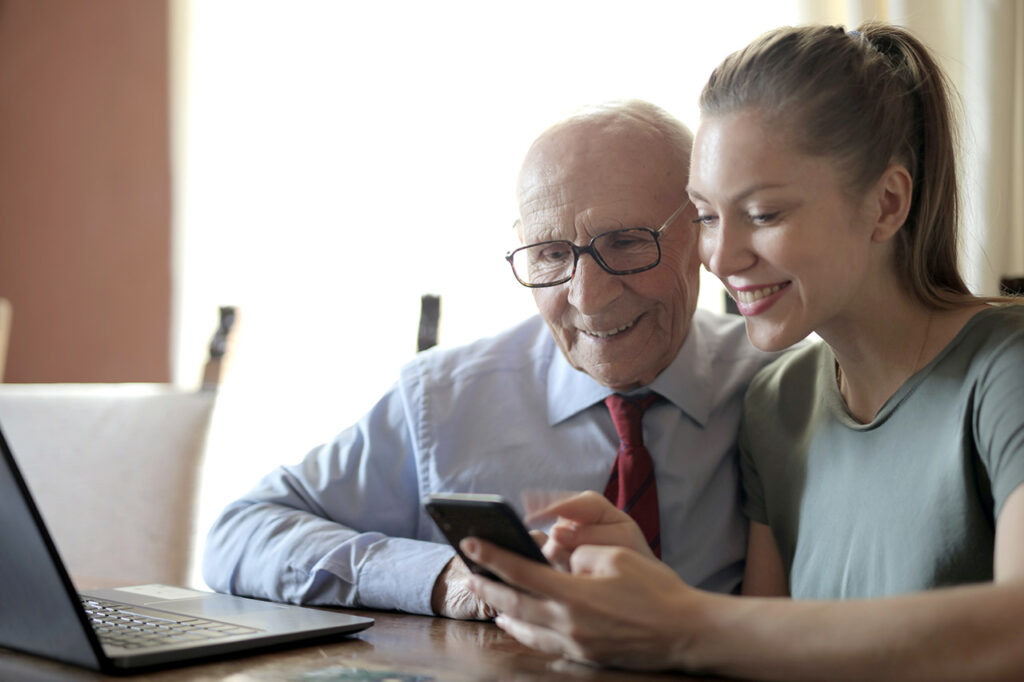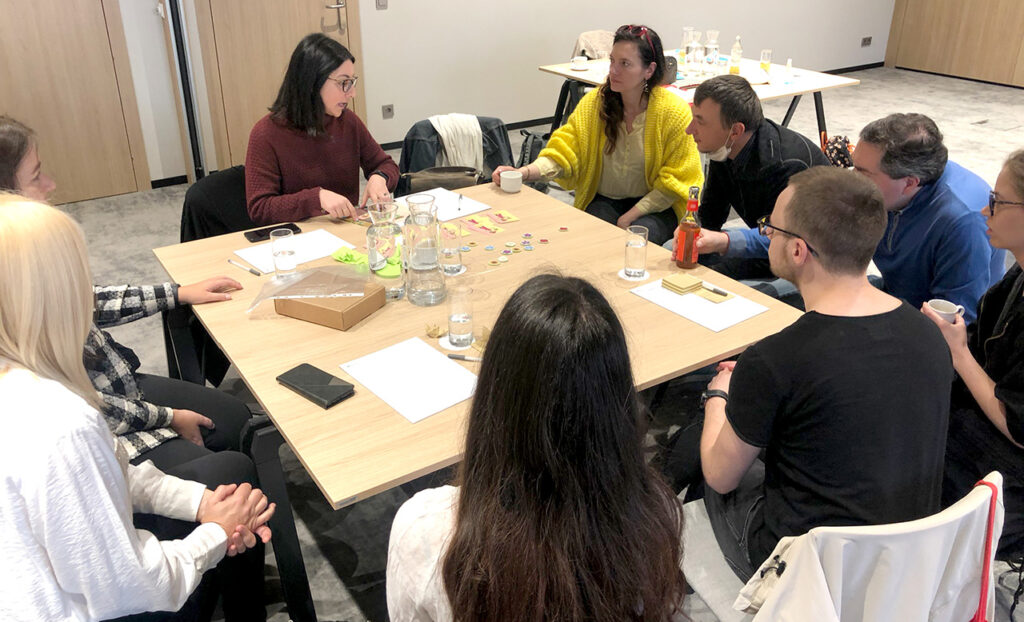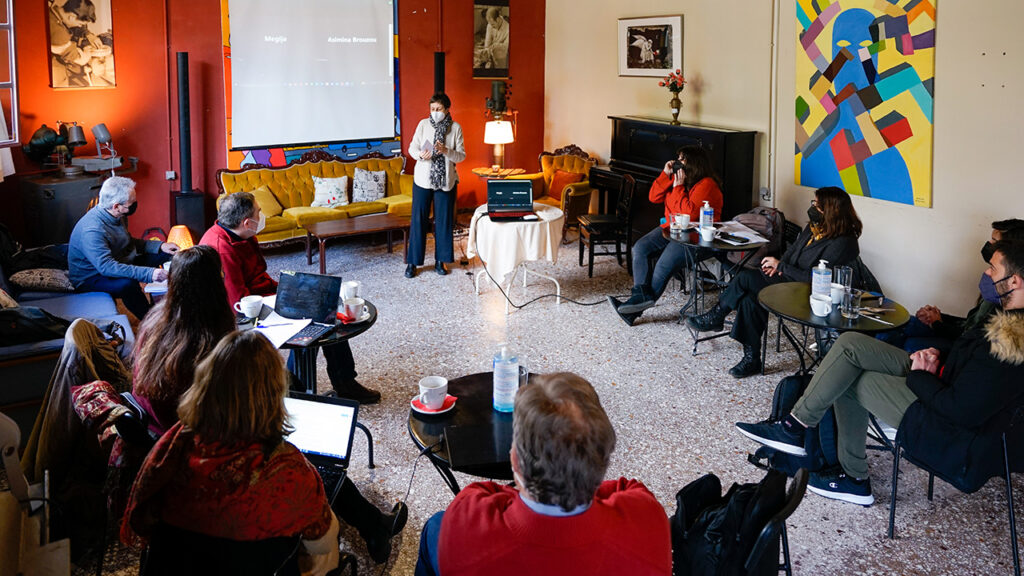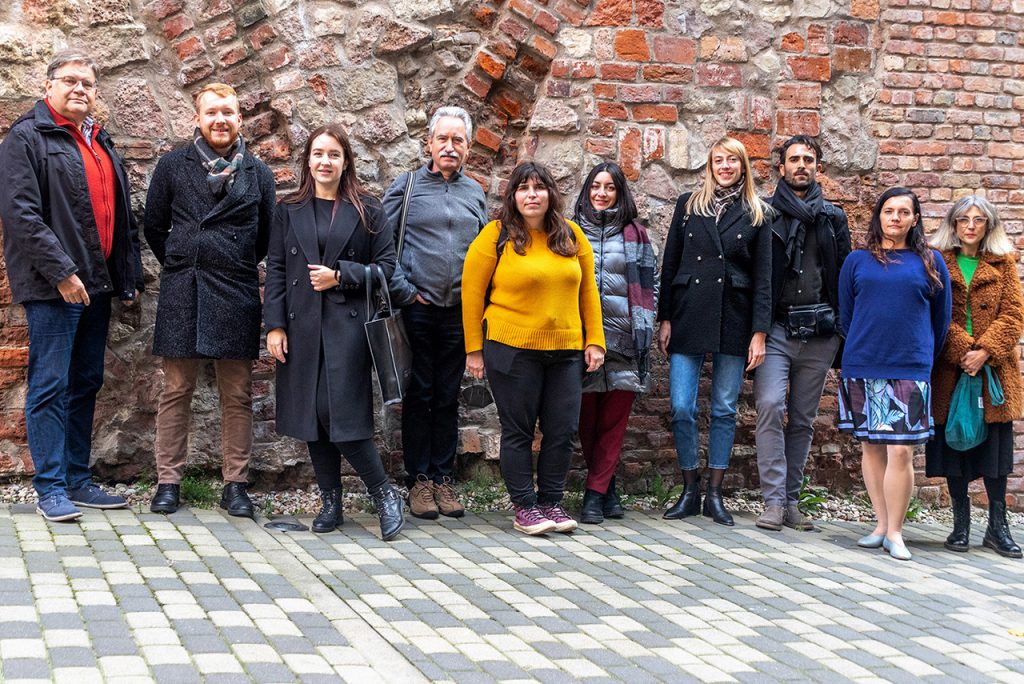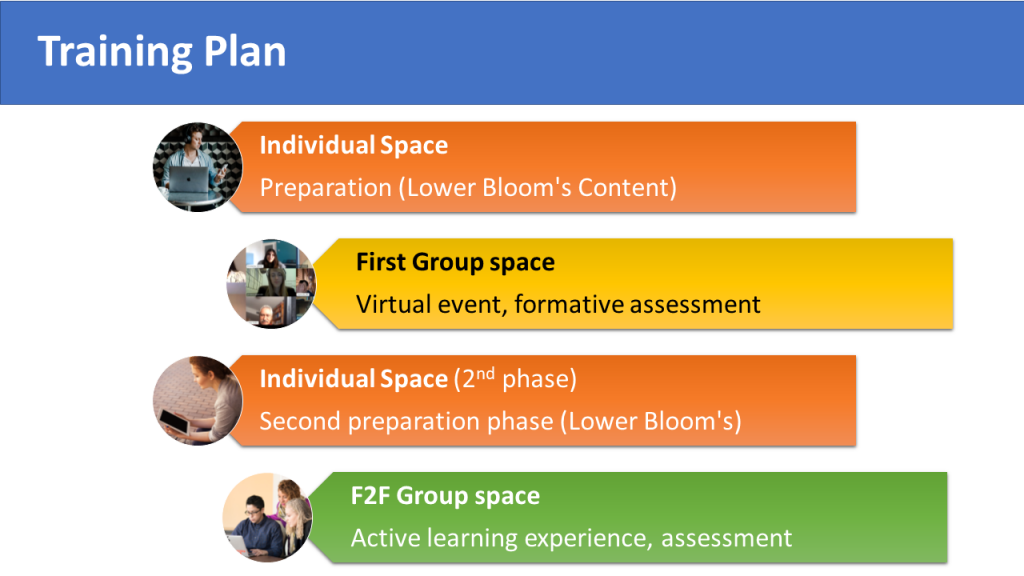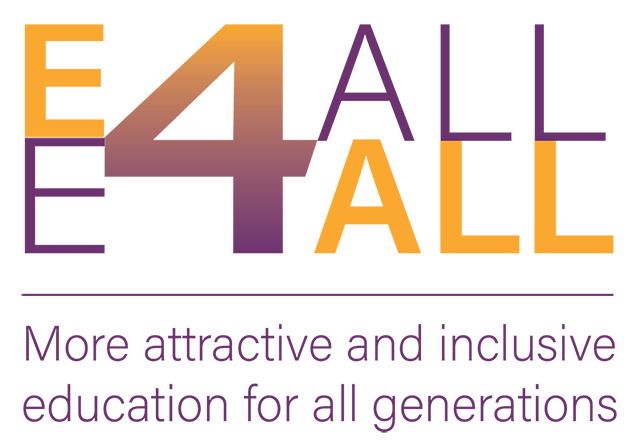 E4All is the acronym of the new Erasmus+ Exchange of Good Practices Project “More attractive and inclusive education for all generations“, Project Number 2020-1-PL01-KA204-082020. The EBI/EIE is the Austrian partner in this project.
E4All is the acronym of the new Erasmus+ Exchange of Good Practices Project “More attractive and inclusive education for all generations“, Project Number 2020-1-PL01-KA204-082020. The EBI/EIE is the Austrian partner in this project.
Project Aims
The general aim of the project is to support adult educators in designing, delivering, and promoting more attractive and inclusive education for all generations of adult learners.
Participants
The direct target group of the project includes the members, workers, co-workers, educators, and volunteers of the Third Sector adult education organisations (i.e. Civil Society Organisations, including informal groups, Non-governmental organisations, and other non-profit organisations).
The indirect target group includes a wide range of education–related organisations, institutions, and decision-makers.
The dissemination activities would reach, in total, at least 44.619 recipients.
Activities
The design of the work programme is chronological. All project activities are divided into 3 phases and 13 Work Packages (WP), including transversal activities of management, evaluation and dissemination. There are 6 Transnational Project Meetings (TPM) planned: 1 kick-off meeting, one summary meeting, and 4 working meetings aiming to exchange experiences and good practices. The workflow during the 4 working meetings gives each partner a space to share their expertise in the field of intergenerational learning.
There are also two international short-term joint staff training events planned. The work programme also includes one start-up package (WP01) and a concluding package (WP10) finalized in delivering final recommendations and the Exit Strategy.
Partners
Fundacja Alternatywnych Inicjatyw Edukacyjnych (Coordinator)
 Our main goal is Lifelong Learning promoting – developing of one’s abilities, predispositions, and interests – both in personal and professional life. Based on our international contacts, we are using international good practices in adult learning. We are promoting and supporting vocational and personal development through culture and art (professional as well as unprofessional), active democracy, and educational mobilities in the EU. We work with intergenerational groups, including both the seniors (Third Age Universities among others) and the youth and youth workers (Eurodesk). Foundation of Alternative Educational Initiatives was founded in April 2011 in Bielsko-Biała (South of Poland, Silesian Voivodship).
Our main goal is Lifelong Learning promoting – developing of one’s abilities, predispositions, and interests – both in personal and professional life. Based on our international contacts, we are using international good practices in adult learning. We are promoting and supporting vocational and personal development through culture and art (professional as well as unprofessional), active democracy, and educational mobilities in the EU. We work with intergenerational groups, including both the seniors (Third Age Universities among others) and the youth and youth workers (Eurodesk). Foundation of Alternative Educational Initiatives was founded in April 2011 in Bielsko-Biała (South of Poland, Silesian Voivodship).
Webpage: fundacjaaie.eu
Associazione Culturale EduVita E.T.S., ITALY
 EduVita is an Italian NGO dedicated to the promotion of lifelong learning and the development of intergenerational and intercultural relationships. It is a coworking and co-learning space, a cultural and educational centre in Lecce, South Italy, founded in January 2019. Their main activities are:
EduVita is an Italian NGO dedicated to the promotion of lifelong learning and the development of intergenerational and intercultural relationships. It is a coworking and co-learning space, a cultural and educational centre in Lecce, South Italy, founded in January 2019. Their main activities are:
- intergenerational learning
- language courses for elderly people
- intercultural learning
- digital education
- promoting of youth initiative and entrepreneurship
Escuela Oficial de Idiomas Madrid-Villaverde
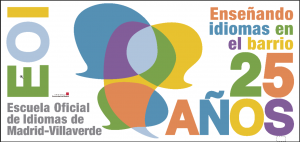 The Official School of Languages Madrid-Villaverde (EOI Madrid-Villaverde) and its Extension El Espinillo is a public language school established in 1990 in the capital city of Spain, Madrid.
The Official School of Languages Madrid-Villaverde (EOI Madrid-Villaverde) and its Extension El Espinillo is a public language school established in 1990 in the capital city of Spain, Madrid.
We have more than a thousand students (16-65y.o.) including teachers, unemployed and retired people, housewives, young professionals, or university students, just to mention some.
In our institution, we teach and certify language learning in English, French, and German.
Our main goal is to promote lifelong language learning to strengthen the students’ professional development, communication skills, and personal growth through language and culture. In addition to teaching, our School gives our students access to extracurricular activities with multicultural content
Link: www.eoivillaverde.com
Challedu
 Challedu pioneers new models of learning, inclusion, and engagement. Its team consists of educators, teachers, experts, and game designers and designs playful experiences and games with the aim to transform every activity into an irresistible experience. The scope is to unlock the transformative power of people as seekers and solvers of complex problems, risk-takers, inventors, and visionaries. Our work also empowers creativity, fantasy, inclusion, and empathy.
Challedu pioneers new models of learning, inclusion, and engagement. Its team consists of educators, teachers, experts, and game designers and designs playful experiences and games with the aim to transform every activity into an irresistible experience. The scope is to unlock the transformative power of people as seekers and solvers of complex problems, risk-takers, inventors, and visionaries. Our work also empowers creativity, fantasy, inclusion, and empathy.
Webpage: challedu.com
Ecological Future Education
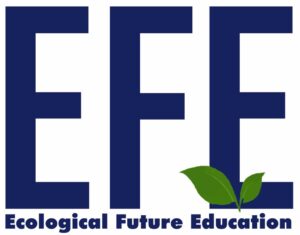 Ecological Future Education (hereinafter – EFE) is a Non-Profit private organisation that has been created to promote a sustainable development mindset in everyday life.
Ecological Future Education (hereinafter – EFE) is a Non-Profit private organisation that has been created to promote a sustainable development mindset in everyday life.
EFE aims to help introduce a new learning and thinking method which would promote environmental awareness as an interesting adventure where everyone participates, thus making the world a better place.
The objective is to inform youth about environmental issues, and daily habit awareness, to improve young people’s skills and competencies concerning green thinking, and to raise social responsibility.
Target groups – social risk groups, young people with destructive problems, adults, and young people. EFE provides training for educators, trainers, and youth workers.
Webpage: www.efe.lv/eng
Recommendations for more inclusive intergenerational adult education
These recommendations are the jointly developed final results of the project.
Learning with each other
- Create opportunities to encourage learning with each other by planning and designing learning processes to give time, and create a safe space and opportunity to use each other’s experiences.
- Ensure equal participation: allowing everyone to be heard and challenging stereotypes and prejudice and, giving time and space for that, creating safe learning environments.
- Allow experimentation – allow failing, acknowledging that making mistakes is an important part of the learning process.
- Avoid unreflective censorship. Allow each type of idea and contribution – try to understand them. Later on – together with the learners – decide whether you want to keep/follow them or not, according to some clearly set, transparent criteria.
- Be flexible about the role of the facilitator: sometimes there is an uninvolved and unbiased facilitator needed (like during Structured Democratic Dialogues), and sometimes – playing an active role by the facilitator is essential (like during linguistic mediation).
- Well-planned and consciously designed intergenerational education can be very effective for bridging the gaps (cultural, ability, knowledge, etc.), and supporting inclusion.
- ‘Role-play’ techniques, ‘role models’ as an educational methodology, supporting the learners to put themselves into someone else’s shoes are useful tools to learn with each other and from each other, to cooperate and include, challenging stereotypes, and fighting prejudices.
- Include learning about various cultures/contexts in the learning process to support inclusiveness. Activities related to national peculiarities and false stereotypes together with generational features to promote the self-knowledge of participants and deeper understanding and collaboration are also recommended. The latter is a very useful tool for multicultural and multigenerational mediation.
Learning from each other
- When learning from each other, it is important to overcome all kinds of challenges or initial expectations regarding different learning styles and preconceived ideas about assumed knowledge (senior students might be used to more teacher-centered approaches, whereas younger learners might be more independent). Therefore, senior learners are more reliant on the teacher and more passive in their learning, while younger students expect more independence and active learning. So finding the right balance between both approaches is paramount to learning. It is important to explain to learners how the learning process is implemented and why this implementation has been selected from the beginning.
- Showing more reluctant learners the benefits of more active learning might help them to understand the proven benefits of more active approaches and build more trust in the group as a generator of knowledge.
- It is essential to address the issue of different levels of digital competencies among learners (younger generations might rely more on digital devices when learning compared to more adult learners). Encouraging group and pair work so that they can work together to help each other might reduce the gap.
- It is important to come up with activities and dynamics to break stereotypes and cultural barriers in order to enhance group cohesion. This might prove more difficult at first but only by building trust and relying on each other’s prior knowledge learning will take place. It is important that people meet each other at eye level, with mutual respect.
Learning about each other
- As an educator of an intergenerational group of learners, do your best to learn as much as possible about your learners. Ask, what are their previous experiences with lifelong learning? How do they imagine the ideal learning environment? What are their concerns concerning common learning? It is worth devoting some time to address these kinds of questions in the first lessons/workshop together.
- Planning to work in a group of learners composed of ‘the youth’ and ‘the seniors’ – it may be a good idea to first ask those questions to the younger and older learners separately, before their first meeting together.
- It is worth planning and realise some team building exercises to prepare the intergenerational group to learn together. It is worth including cultural/artistic/creative activities here. Having some fun, co-creating, brings people together.
- Working with groups of learners mixed in age, various learning approaches, and teaching methodologies can be needed. Try to be flexible and to hear the needs and expectations of the group of learners. Personalise. Adapt. Engage.
- The “coffee breaks” time is an important part of the learning process. Ensure this time.
- Include elements of the cultural exchange to the learning process: the exchange on and sharing of traditions, food customs, habits, and background lets the people see themselves just as interesting people, not just the learners.
- Digital competencies are important for all generations, and it is worth to use also digital tools for the learning process. Still, various generations may be accustomed to using those tools differently. Do your best to find synergies here, creating opportunities and allowing learning from each other.
Download the recommendations here
Download in English language
Download in German Language
Activities in the frame of the project
![]()
The aims of KA2 strategic partnerships are defined to create "a more modern, dynamic, committed, and professional environment inside the
Read more
The project closing meeting of the E4ALL Project took place in Lecce (Italy) from the 6th – the 7th of
Read more
In the frame of the E4ALL project, we created a post dealing with intergenerational training and the training of digital
Read more
E4ALL means Education For All! In the frame of this Erasmus+ Project, the trainees from 6 different countries came to
Read more
In the frame of the E4ALL Project, the EBI will provide a special workshop focusing on "Critical Thinking". In our
Read more
The first meeting in the year 2022 took place in Athens (Greece), hosted by Challedu, from February Exchange of good
Read more
The first training of the E4ALL Project took place in Madrid (November 16th to 18th) followed by the partner meeting
Read more
The first face-to-face project meeting of the E4ALL project took place from October 5th to 6th, 2021 in Riga. It
Read more
This is the new challenge for the EBI/EIE! In the frame of the E4All (Education for All) project we will
Read more
The Greek partner in the project - Challedu - developped the logo for the project. This project aims to support
Read more
 The European Commission support for the production of this publication does not constitute an endorsement of the contents which reflects the views only of the authors, and the Commission cannot be held responsible for any use which may be made of the information contained therein.
The European Commission support for the production of this publication does not constitute an endorsement of the contents which reflects the views only of the authors, and the Commission cannot be held responsible for any use which may be made of the information contained therein.
 E4All is the acronym of the new Erasmus+ Exchange of Good Practices Project “More attractive and inclusive education for all generations“, Project Number 2020-1-PL01-KA204-082020. The EBI/EIE is the Austrian partner in this project.
E4All is the acronym of the new Erasmus+ Exchange of Good Practices Project “More attractive and inclusive education for all generations“, Project Number 2020-1-PL01-KA204-082020. The EBI/EIE is the Austrian partner in this project. Our main goal is Lifelong Learning promoting – developing of one’s abilities, predispositions, and interests – both in personal and professional life. Based on our international contacts, we are using international good practices in adult learning. We are promoting and supporting vocational and personal development through culture and art (professional as well as unprofessional), active democracy, and educational mobilities in the EU. We work with intergenerational groups, including both the seniors (Third Age Universities among others) and the youth and youth workers (Eurodesk). Foundation of Alternative Educational Initiatives was founded in April 2011 in Bielsko-Biała (South of Poland, Silesian Voivodship).
Our main goal is Lifelong Learning promoting – developing of one’s abilities, predispositions, and interests – both in personal and professional life. Based on our international contacts, we are using international good practices in adult learning. We are promoting and supporting vocational and personal development through culture and art (professional as well as unprofessional), active democracy, and educational mobilities in the EU. We work with intergenerational groups, including both the seniors (Third Age Universities among others) and the youth and youth workers (Eurodesk). Foundation of Alternative Educational Initiatives was founded in April 2011 in Bielsko-Biała (South of Poland, Silesian Voivodship). EduVita is an Italian NGO dedicated to the promotion of lifelong learning and the development of intergenerational and intercultural relationships. It is a coworking and co-learning space, a cultural and educational centre in Lecce, South Italy, founded in January 2019. Their main activities are:
EduVita is an Italian NGO dedicated to the promotion of lifelong learning and the development of intergenerational and intercultural relationships. It is a coworking and co-learning space, a cultural and educational centre in Lecce, South Italy, founded in January 2019. Their main activities are: The Official School of Languages Madrid-Villaverde (EOI Madrid-Villaverde) and its Extension El Espinillo is a public language school established in 1990 in the capital city of Spain, Madrid.
The Official School of Languages Madrid-Villaverde (EOI Madrid-Villaverde) and its Extension El Espinillo is a public language school established in 1990 in the capital city of Spain, Madrid. Challedu pioneers new models of learning, inclusion, and engagement. Its team consists of educators, teachers, experts, and game designers and designs playful experiences and games with the aim to transform every activity into an irresistible experience. The scope is to unlock the transformative power of people as seekers and solvers of complex problems, risk-takers, inventors, and visionaries. Our work also empowers creativity, fantasy, inclusion, and empathy.
Challedu pioneers new models of learning, inclusion, and engagement. Its team consists of educators, teachers, experts, and game designers and designs playful experiences and games with the aim to transform every activity into an irresistible experience. The scope is to unlock the transformative power of people as seekers and solvers of complex problems, risk-takers, inventors, and visionaries. Our work also empowers creativity, fantasy, inclusion, and empathy. Ecological Future Education (hereinafter – EFE) is a Non-Profit private organisation that has been created to promote a sustainable development mindset in everyday life.
Ecological Future Education (hereinafter – EFE) is a Non-Profit private organisation that has been created to promote a sustainable development mindset in everyday life. The European Commission support for the production of this publication does not constitute an endorsement of the contents which reflects the views only of the authors, and the Commission cannot be held responsible for any use which may be made of the information contained therein.
The European Commission support for the production of this publication does not constitute an endorsement of the contents which reflects the views only of the authors, and the Commission cannot be held responsible for any use which may be made of the information contained therein.